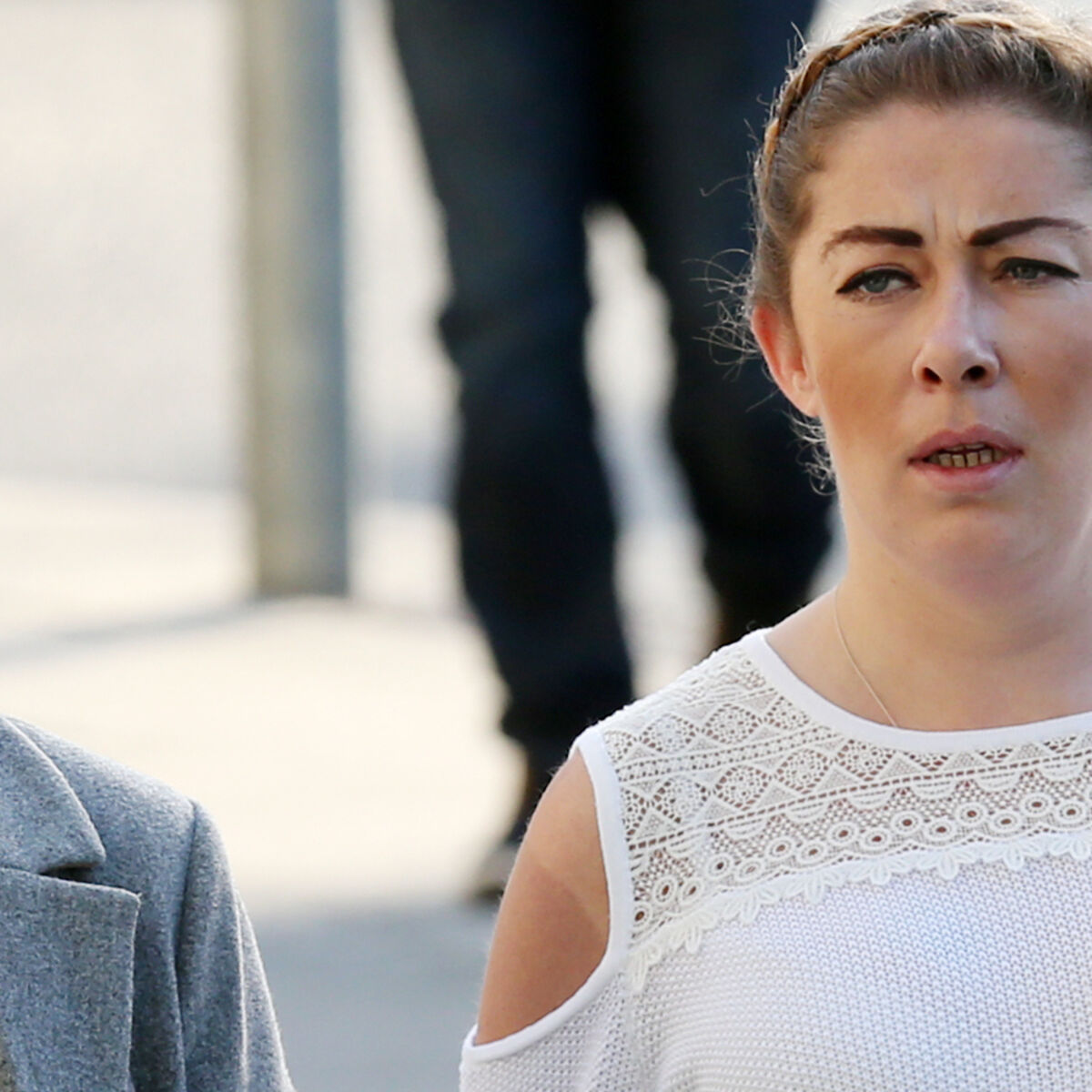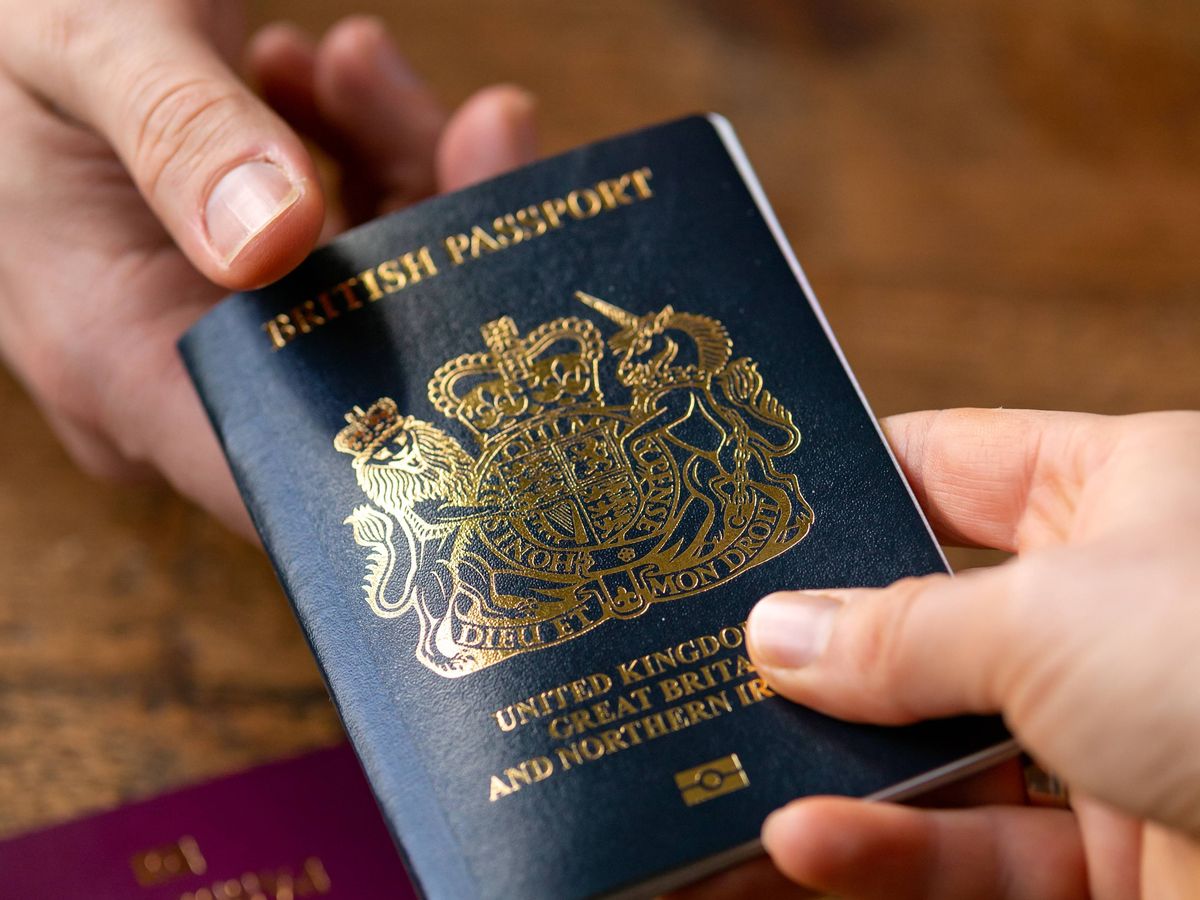By Ann Murphy,Irishexaminer.com
Copyright irishexaminer

She then slashed Fi across her neck, before demanding her handbag and fleeing to a nearby train station. Fi was left with serious injuries which required surgery and time in intensive care in hospital.
It later emerged that Kenna then travelled by train from Drumcondra to Maynooth and visited a number of pubs in which she tried to sell Fi’s mobile phone. The following day, she went to Tallaght garda station in “a highly agitated state”, where she was arrested for breach of the Public Order Act.
Following her arrest, she was discovered to have items from Fi’s bag in her possession – including her ID card – leading to Kenna being interviewed about the Drumcondra attack. While on route to a city centre garda station for questioning about the attack, she claimed to have killed Fi and also told gardaí that she had “sliced her like you would a goat”.
During the subsequent garda interview, she told officers: “If you let me out, I’ll finish her off.” She also said she wanted to kill someone and said she had intended to eat the injured party. While she also said she wanted money, she told gardaí her motivation was to kill.
Second trial
Kenna was charged with the attack on the civil servant and eventually sentenced in April 2019 to 10 years in jail for the attempted murder of Fi on January 3, 2017, and assault causing harm. She had been found guilty of the two crimes by a jury.
This came after she entered a not guilty plea by reason of insanity to both counts but this was disregarded by the jury. It was the second time the case had come to trial – the previous October, a jury failed to reach a verdict in the first trial.
At the sentencing hearing, Ms Justice Tara Burns said the incident was vicious, random, horrifying and frightening, and had demonstrated an attempt to kill her victim.
The judge noted that she was “a very, very unlucky woman to have been the random victim of this accused”.
She added:
She is very lucky that she is still with us and doesn’t have more significant injuries.
The judge also said it was clear that Kenna was suffering from a significant mental health condition at the time which may have gone untreated for up to six years.
By the time the trial had started, Kenna had been diagnosed with schizoaffective disorder and was in the Central Mental Hospital.
Mental illness
Following her arrest for the attack on Fi, she was charged and remanded in custody, and assessed by psychiatrists who believed she was in a psychotic state. As a result, she was transferred from prison to the Central Mental Hospital.
The judge noted that the jury’s guilty verdict did not mean that she was not suffering from a mental illness at the time. She elaborated that a person may well be suffering from a significant mental illness but still know the nature of their actions.
“People with mental health difficulties are also required to act with a moral responsibility,” she said. She also said that Kenna had engaged in “very normal behaviour” both before and after the attack.
The judge referenced Kenna’s drug taking, noting that it had complicated her mental health issues and diagnosis.
Although she said a headline sentence of 17 years imprisonment was appropriate for the crime, she considered mitigating factors including Kenna’s admissions and remorse as being among reasons why she would impose a 15-year sentence.
She suspended five of those years on condition that Kenna would co-operate with a consultant psychiatrist, abide by all treatment regimes and remain drug- and alcohol-free for the duration of the suspended period.
This came after her legal team sought the suspension of all or the majority of her sentence in light of her mental health issue, but the judge said this option was not open to her.
When Kenna appealed her conviction and sentence, the subsequent ruling against her appeal outlined that at her trial, two consultant psychiatrists from the Central Mental Hospital had differing views on whether she met the criteria for the special verdict of not guilty by reason of insanity.
One, Dr Stephen Monks, opined that the then-accused had been suffering from a mental disorder at the time of the attack on Fi “to such an extent that she was legally insane”. However, the ruling noted that Professor Harry Kennedy “was of the view that the appellant did not meet the criteria for the defence of not guilty by reason of insanity”.
Ironically, the same two men had agreed in a case against Kenna arising from a different assault carried out by Kenna just two weeks before the attack on Fi.
In the earlier attack, she assaulted a woman on a Luas platform after she believed that she had been “getting smart with her”. She tried to stab the woman with a pen on that occasion.
Subsequently, she was charged with assault causing harm. She was found not guilty by reason of insanity, after the jury heard evidence from Professor Kennedy and Dr Monks that agreed that Kenna met the criteria for a verdict of not guilty by reason of insanity.
As a result, her detention at the Central Mental Hospital is indefinite, and is one that is reviewed by Mental Health (Criminal Law) Review Board which decides on a release date.
Sentence served
Despite not having served any further time in prison in relation to the attack on Fi, her sentence has been considered served as it was served concurrently with her detention at the Central Mental Hospital, and she would have been due for release from prison last July.
While the Irish Prison Service said it does not comment on individual cases, sources said she was considered released from prison last July, having been considered as having served the sentence.
However, Fi is angry that she is considered to have served her sentence even though she remained in the Central Mental Hospital for the duration of the time of the detention.
She said: “As far as they’re (Irish Prison Service) concerned she’s been ‘released’, but only around a week was actually served with them.”
She added:
It’s particularly difficult to accept there will not be a prison sentence served when she told gardaí when arrested that if released she would ‘finish me off’.
In frustration at the situation, she has contacted several TDs, including members of the Government, to raise concerns about her case.
She says: “It’s possible that I might be the only victim of crime in the situation that I’m in, where someone served a sentence for attempted murder concurrently with an indefinite detention in relation to another matter. Serving them concurrently seems very unfair to me, it feels to me that my sentence was the one that didn’t matter.”
But she says: “It was never explained to me that she wouldn’t have to serve a prison sentence for what she did to me, I only found out that she’d been in the CMH the whole time when I contacted the Prison Service’s Victim Liaison Officer in late 2023.”
Registering as a victim
If the term at the Central Mental Hospital related to Fi’s case, she would have had the option of registering as a victim with the National Forensic Mental Health Service.
This would allow her access to information such as her release from the hospital, including temporary leave, discharge subject to conditions, or unconditional discharge.
However, because the case arising from the assault on Fi did not result in the special verdict of guilty by reason of insanity, Fi did not have the right to register as a victim with the National Forensic Mental Health Service and is not entitled to information regarding any releases of Kenna.
Change to law
Last year, a number of politicians raised her situation through parliamentary questions to the then-minister for justice Helen McEntee, asking if legislation would be amended to give her a right to information when her attacker is released from the Central Mental Hospital even though the sentence for her crime is considered to have been served since last July.
In response, Ms McEntee said: “While the victim in the attempted murder case is entitled to be informed of the release date of the perpetrator in relation to that criminal conviction, that right is essentially moot.
“This is because the perpetrator will not be released at the end of that sentence but will remain in the Central Mental Hospital for a longer period as a result of the concurrent, but longer period of detention for the unrelated offence.”
She acknowledged that the case is “unique and complex”, and said senior officials from her department had met with Fi to discuss her case.
She added: “On foot of that meeting, my officials have committed to examining how we can ensure that a person’s right to information about the release date would continue to operate where the actual date of release from detention is deferred due a separate detention in the CMH on an unrelated matter.
“This examination will include looking at whether amending legislation is required.”
A statement from the Department of Justice to the Irish Examiner said: “In general, if a victim wishes to receive information about a patient detained in the Central Mental Hospital in relation to an offence against them, they may register with the National Forensic Mental Health Service (NFMHS) Victim Liaison Officer.”
However, the response also admitted that the case “referred to” is of a “unique and complex nature”.
It continued: “Department officials are committed to examining the specific circumstances to ensure a person’s right to information is respected. Further policy and legal considerations are required before any legislative amendment can be undertaken.”



